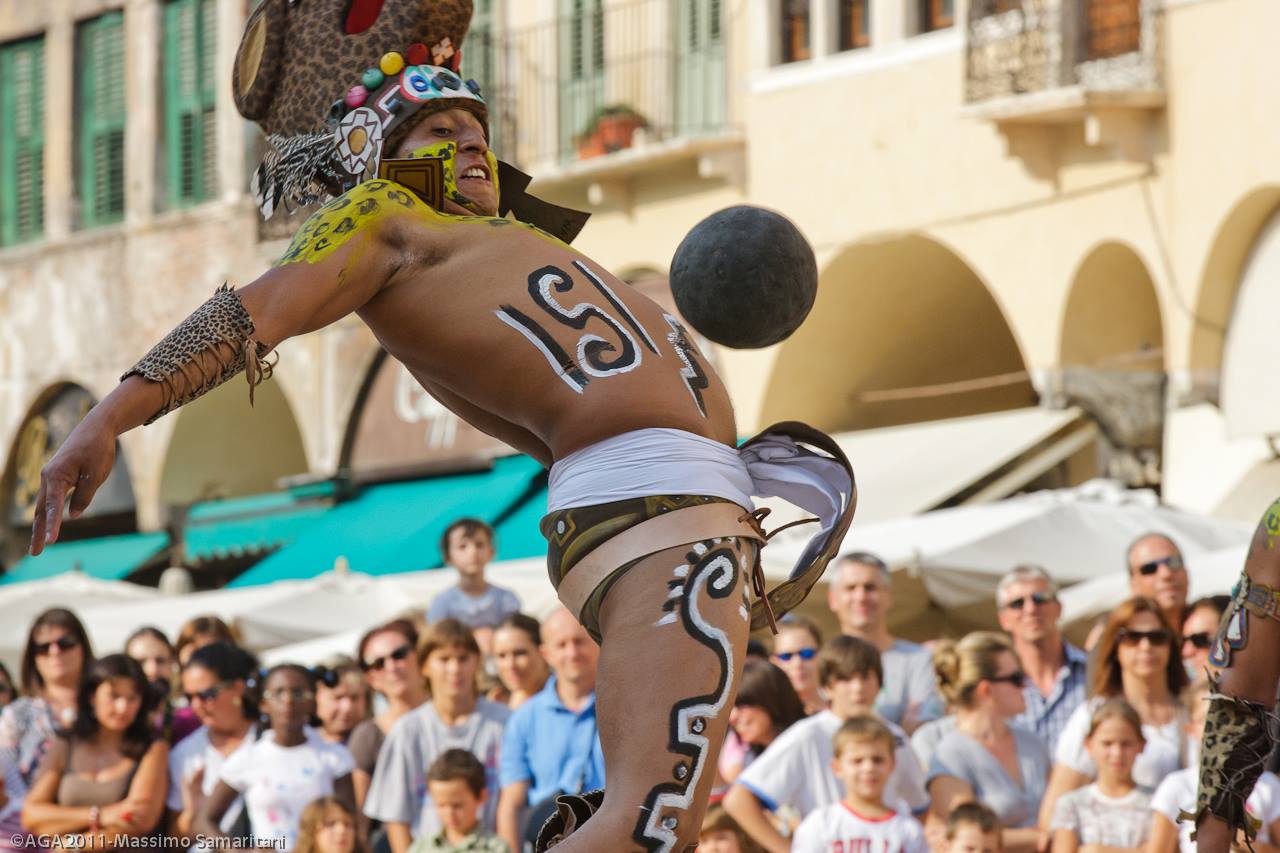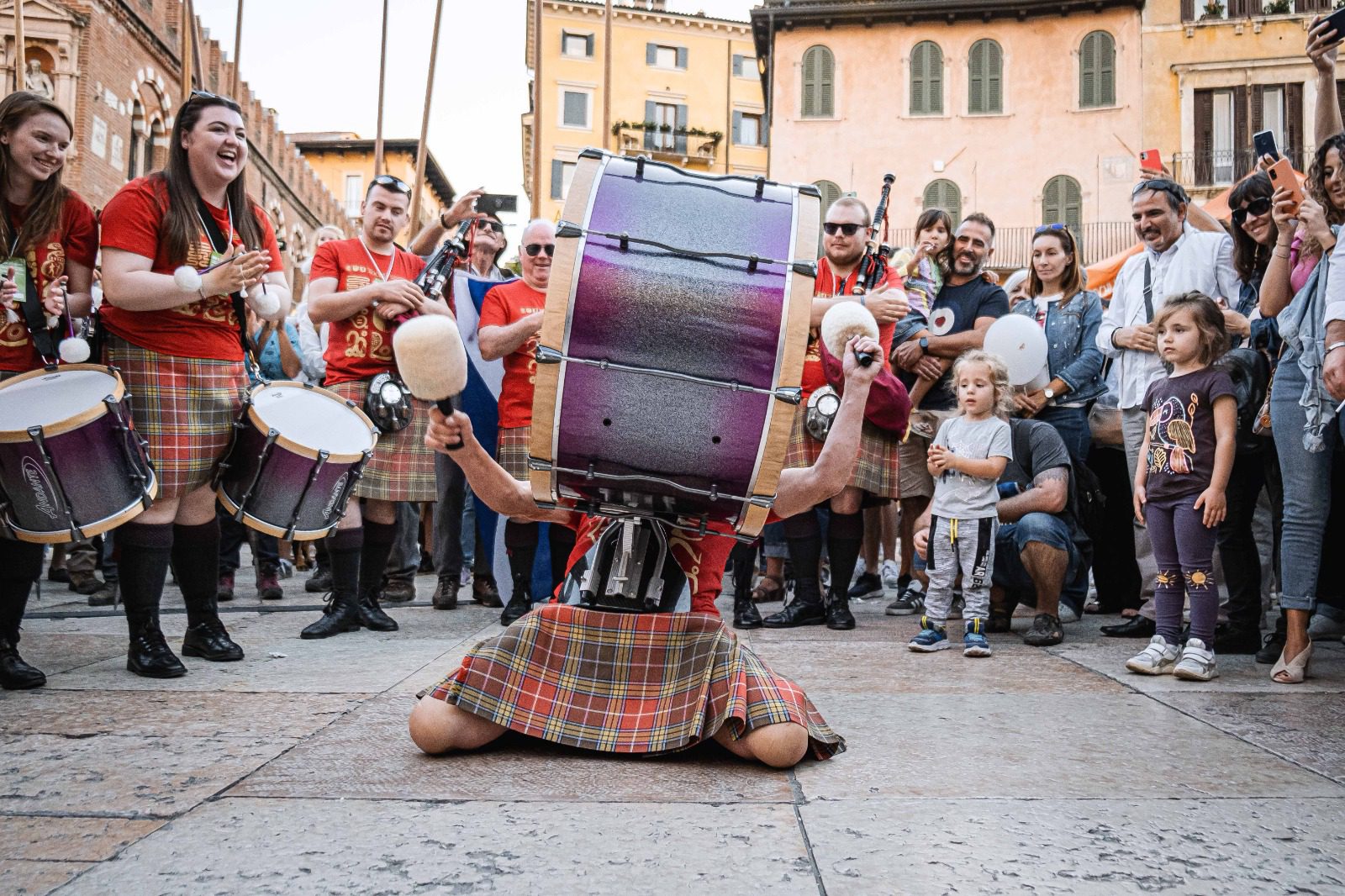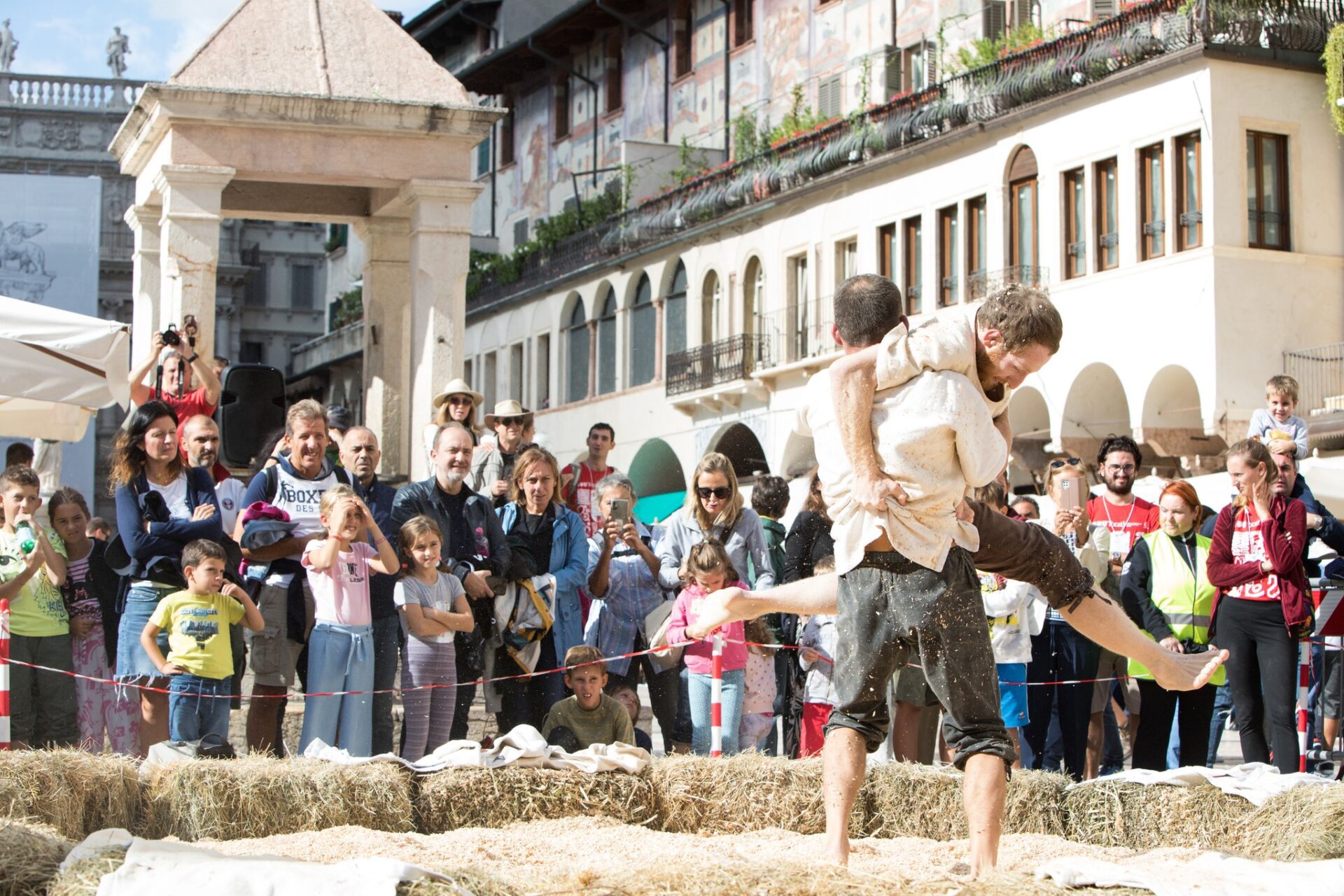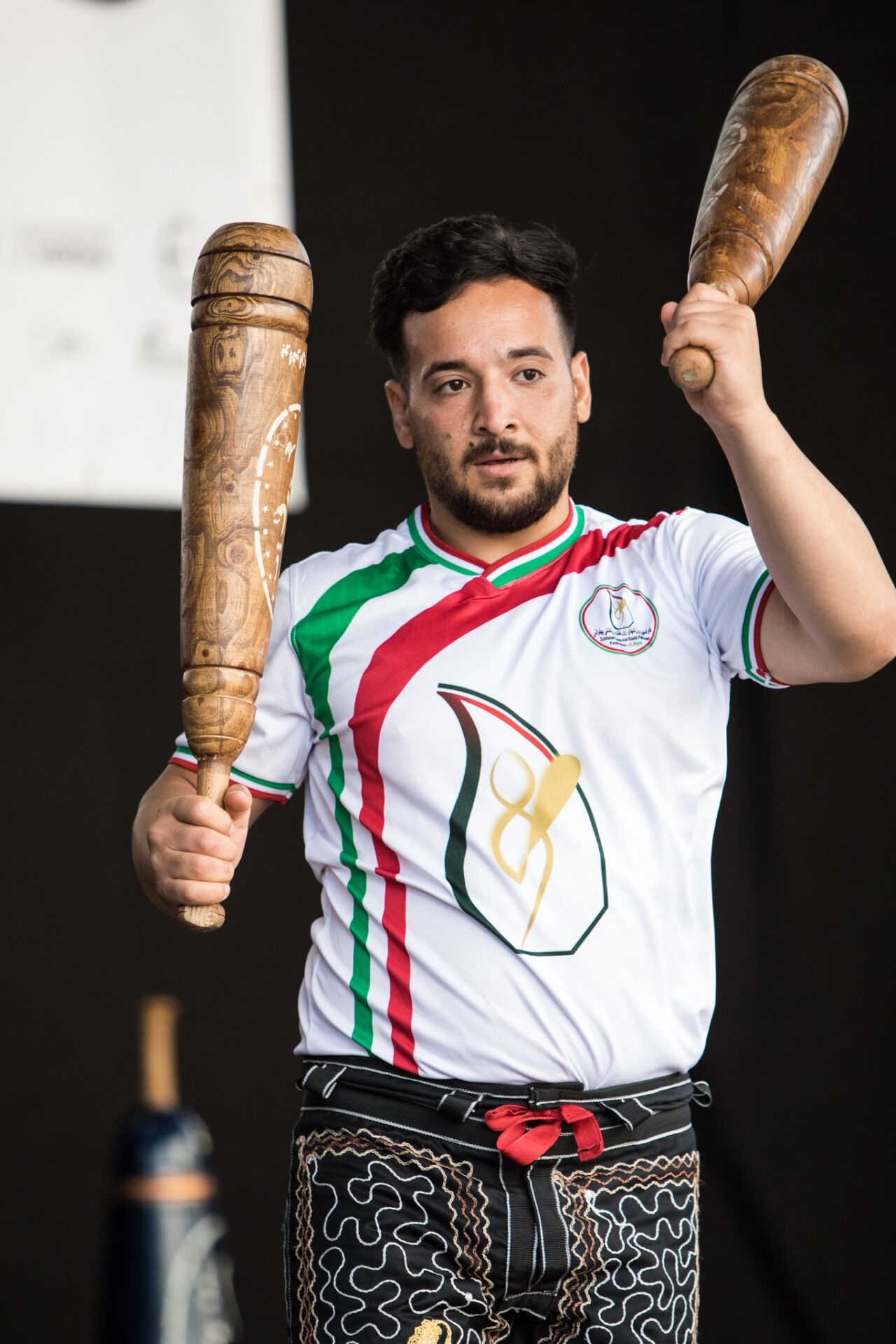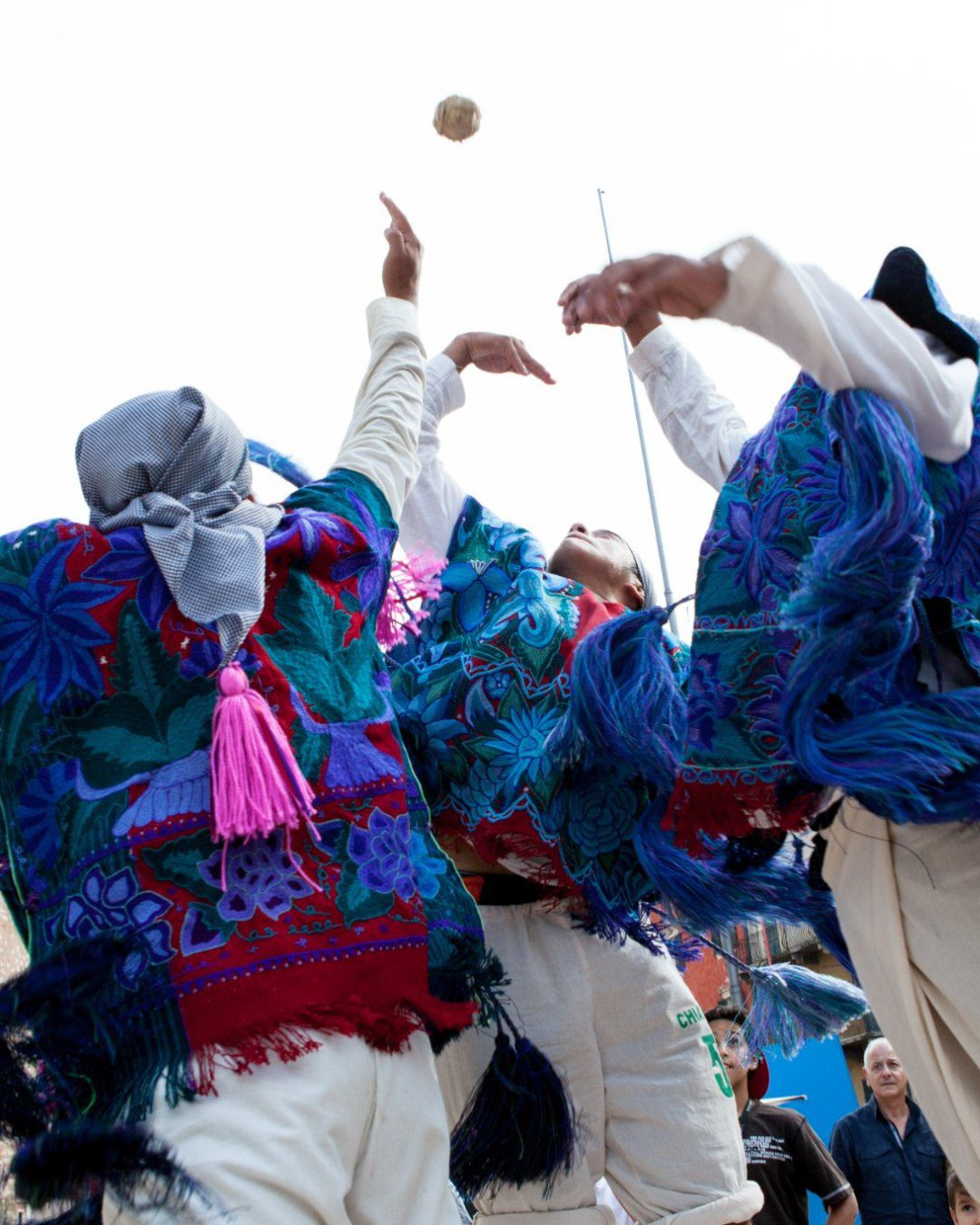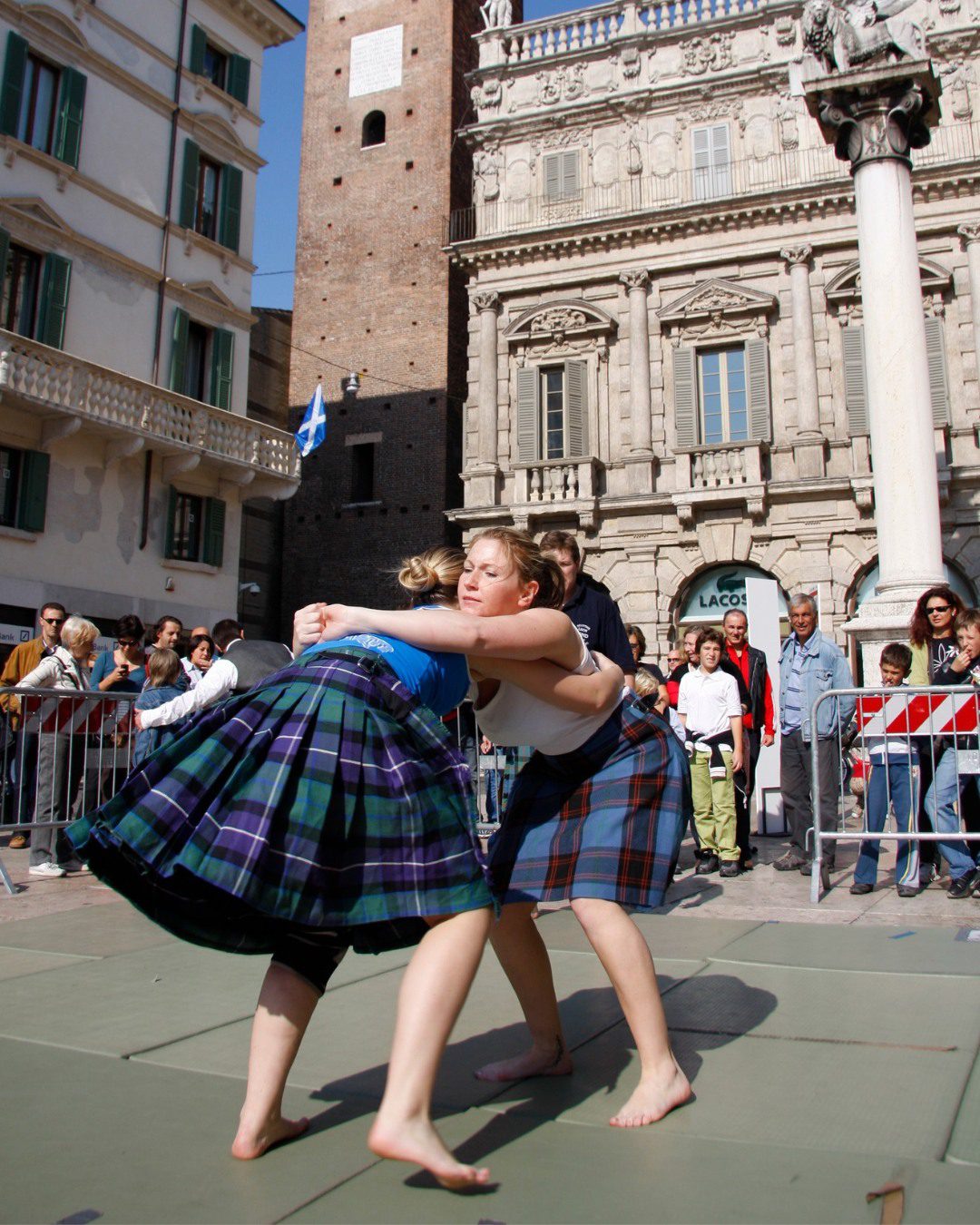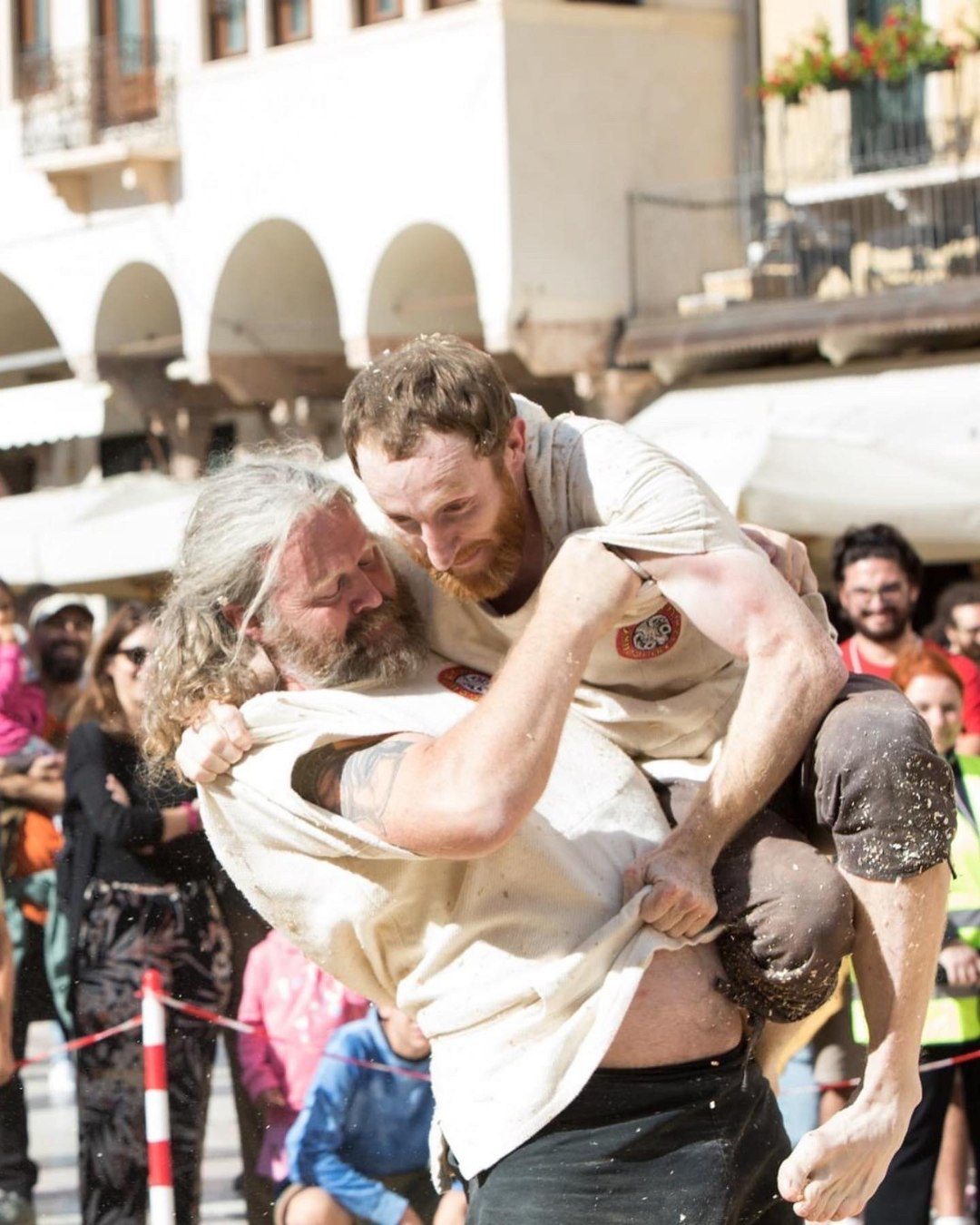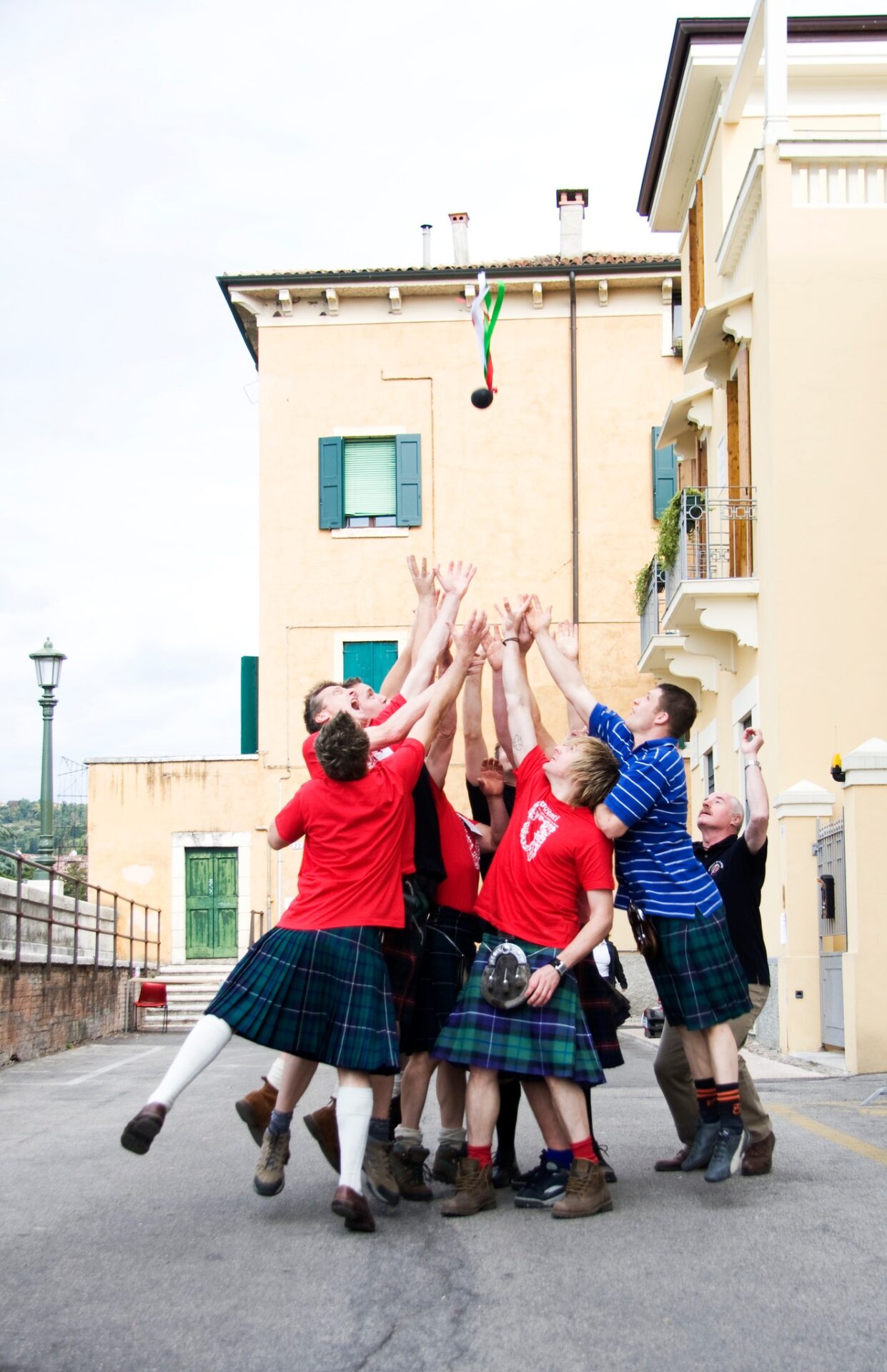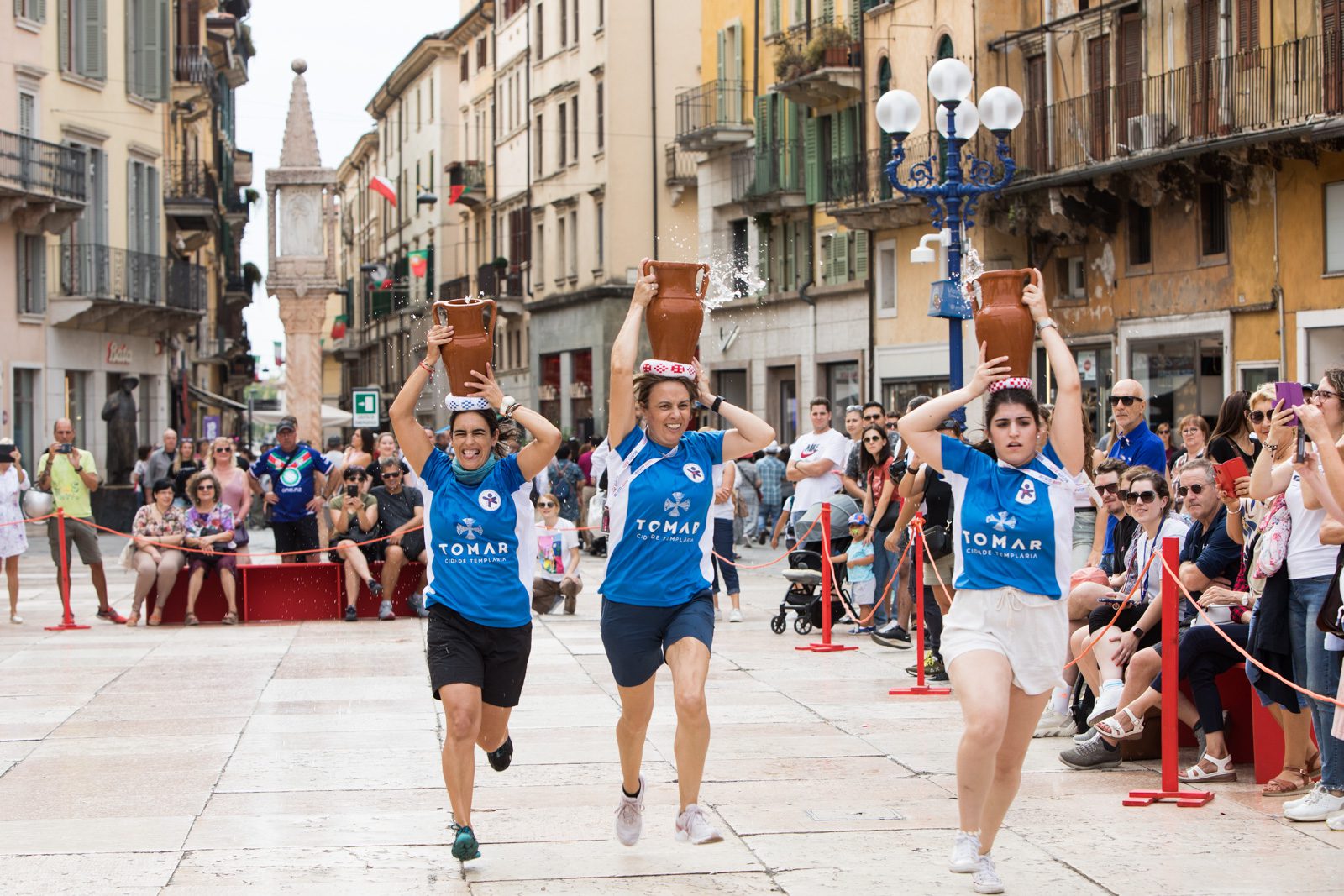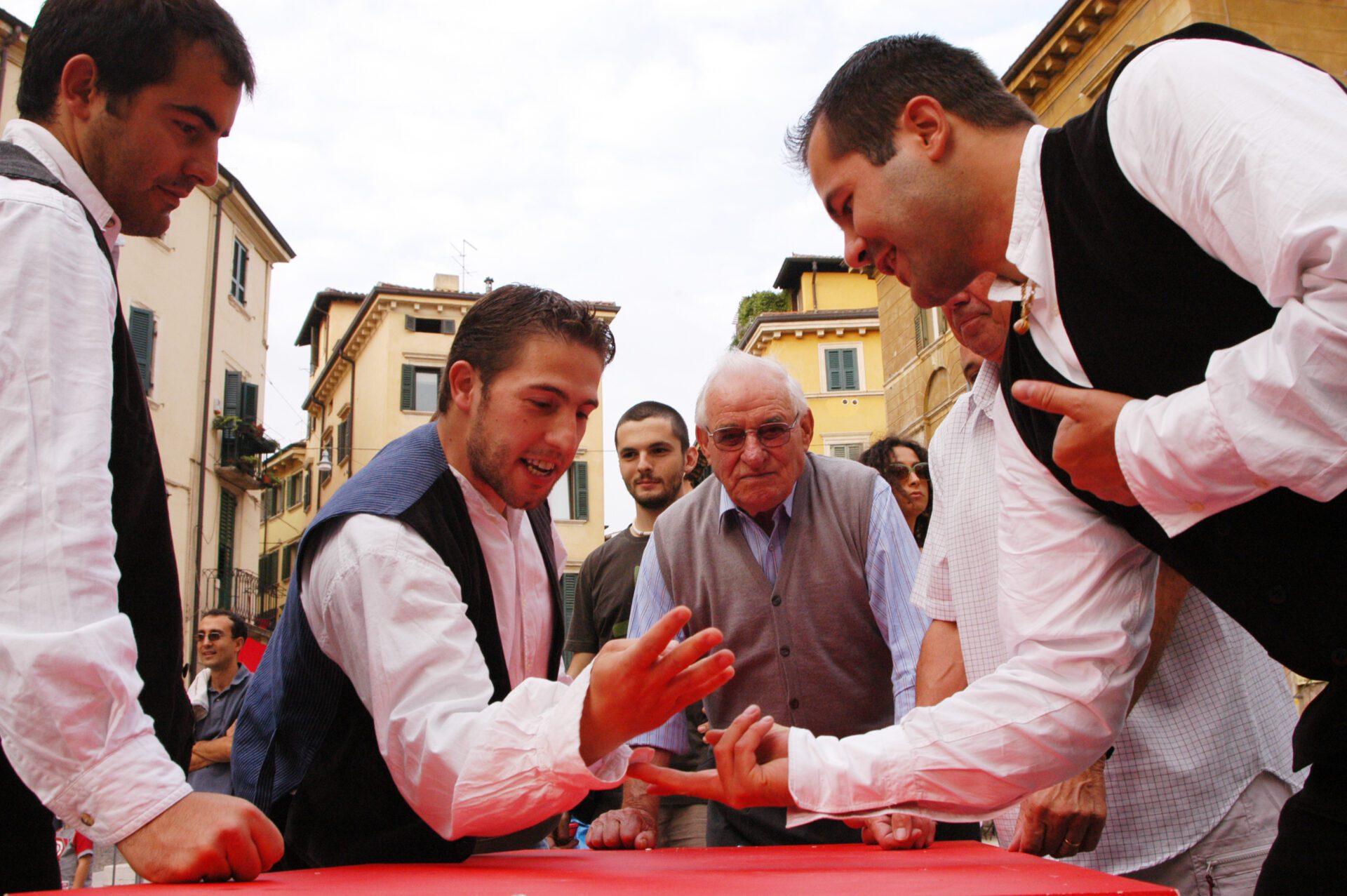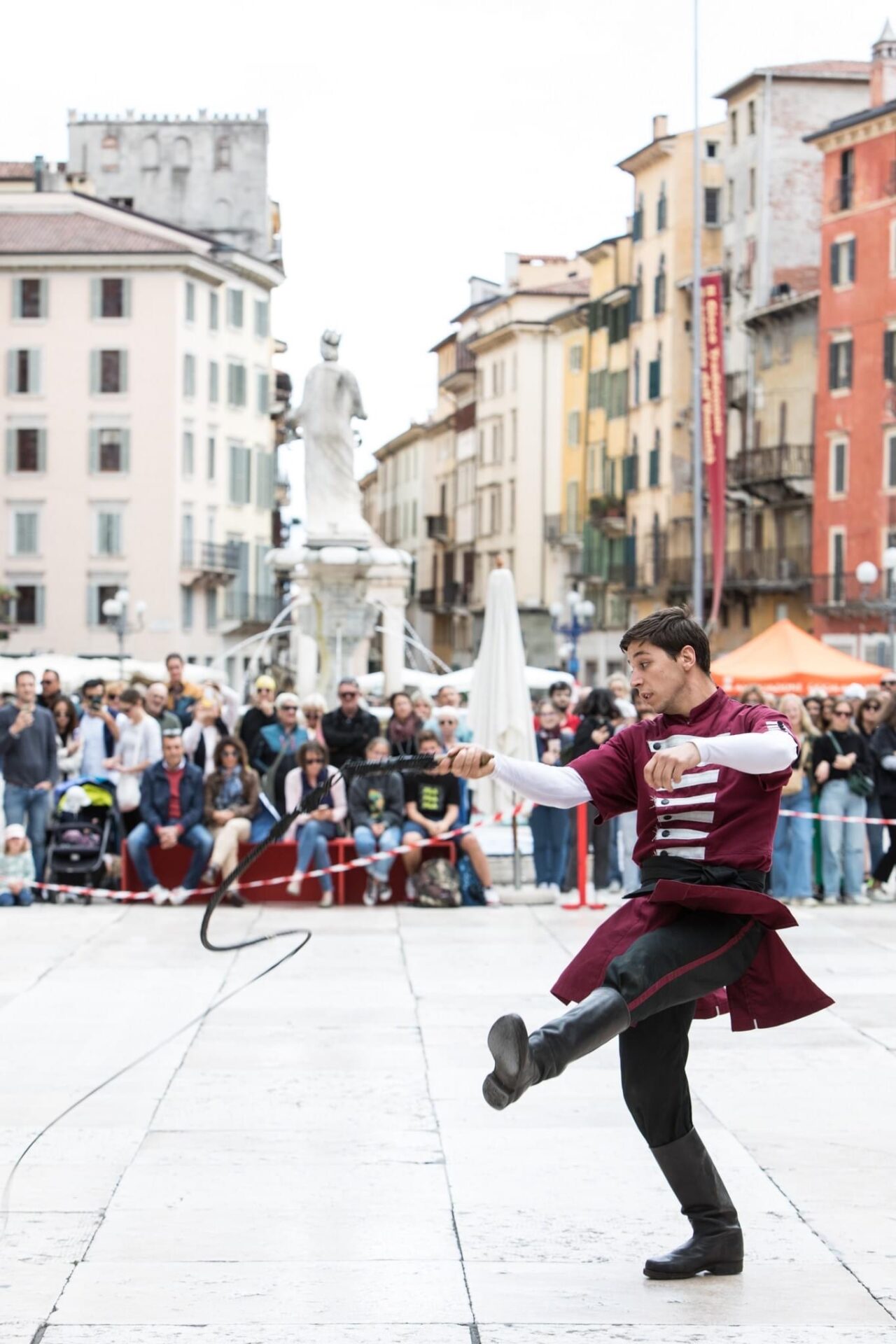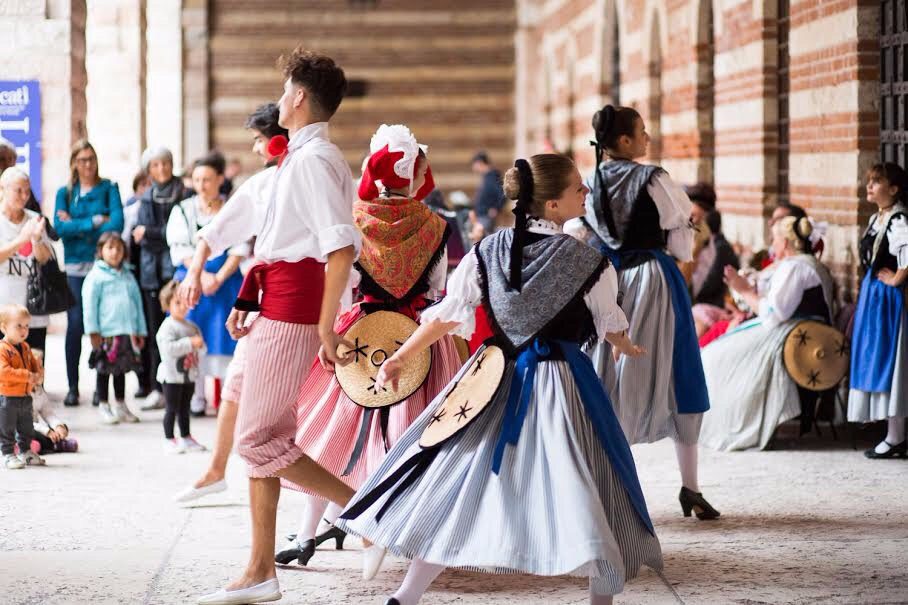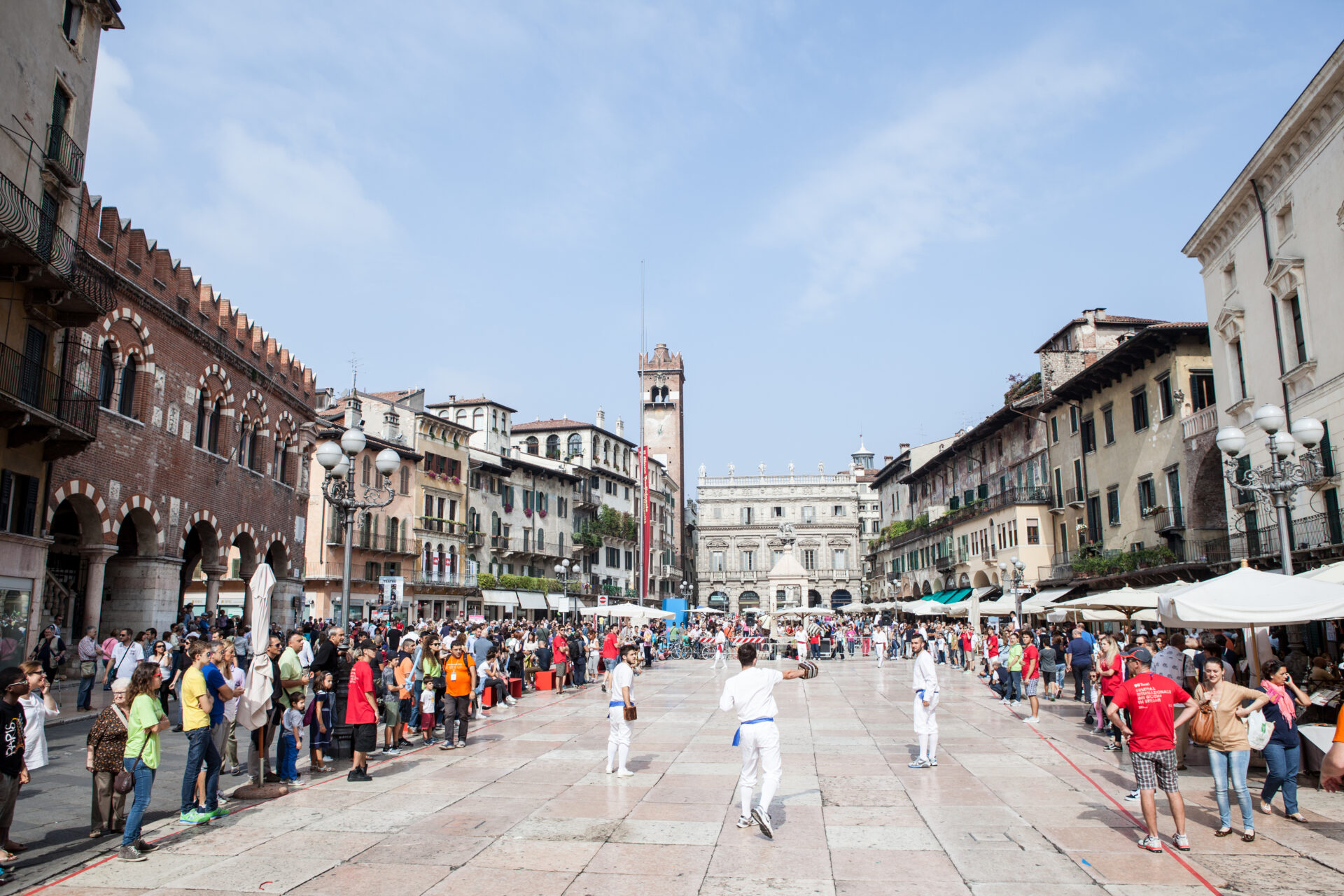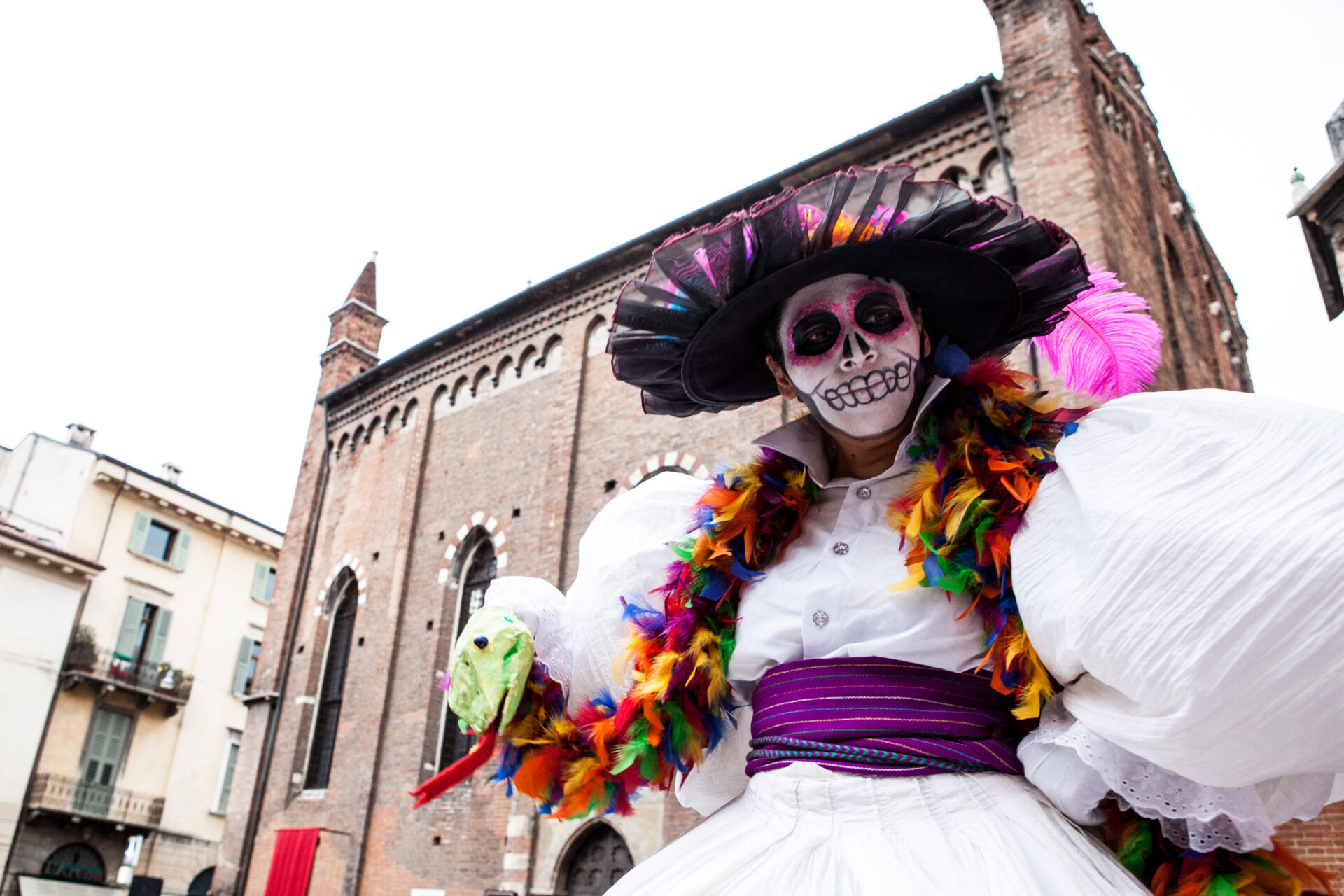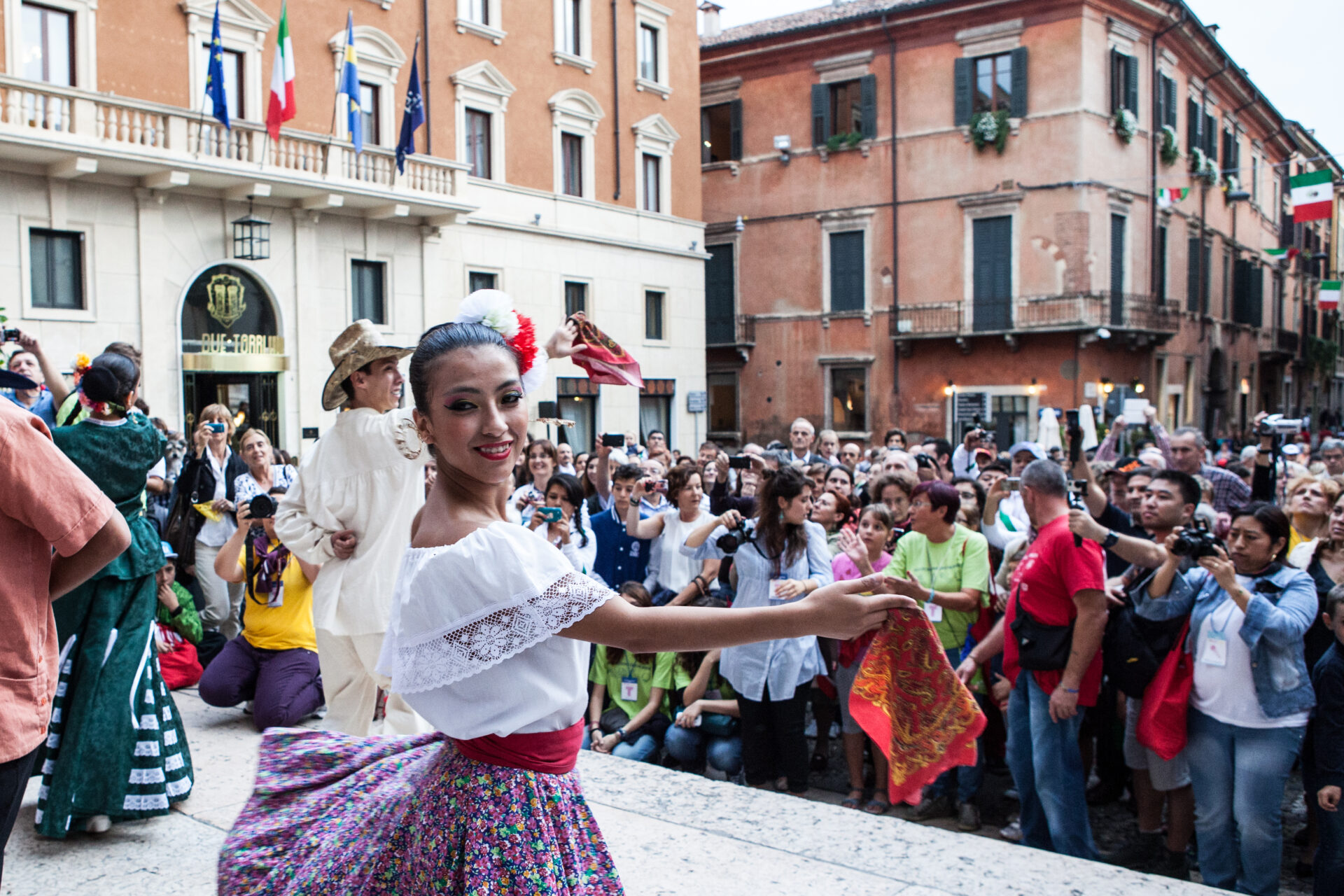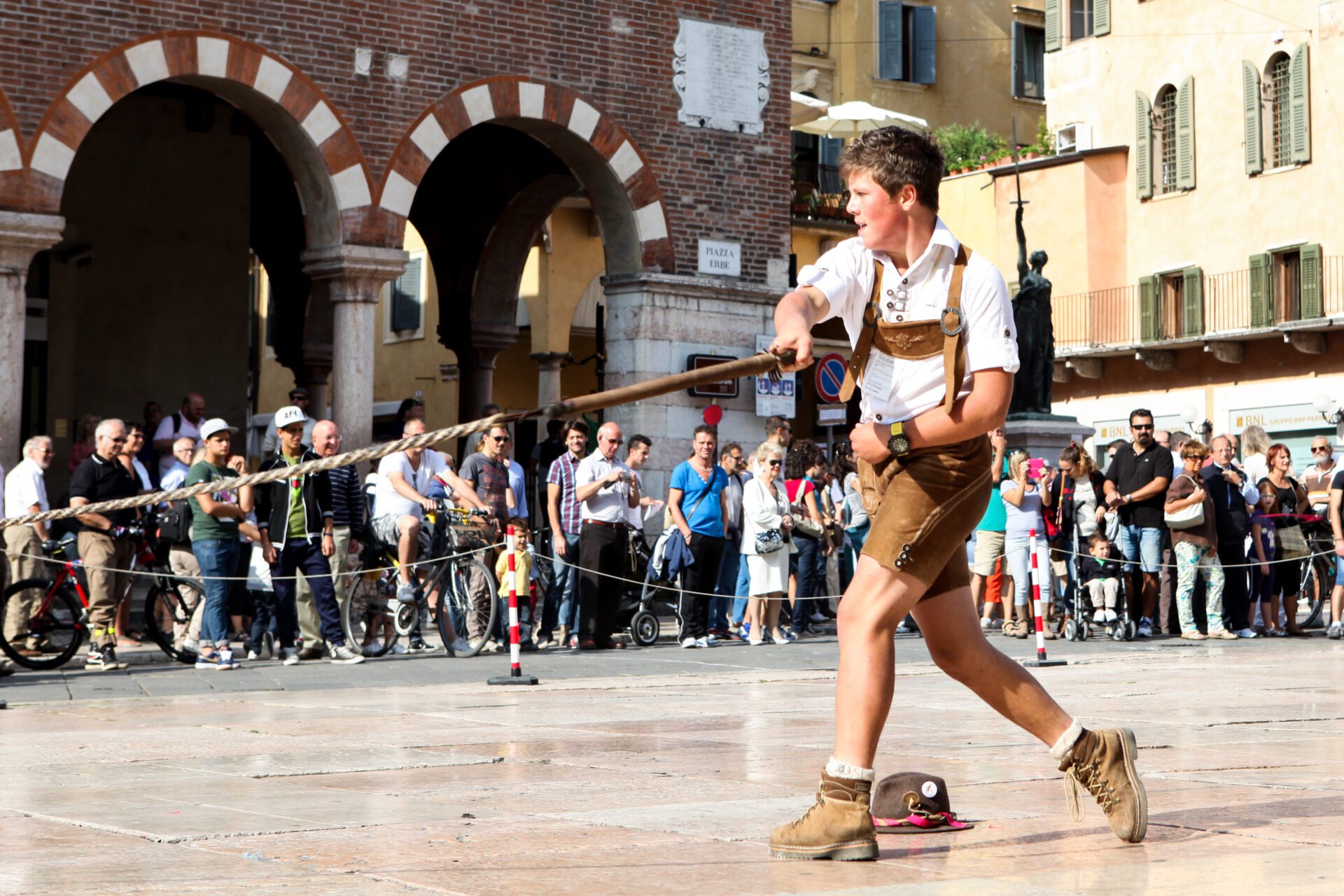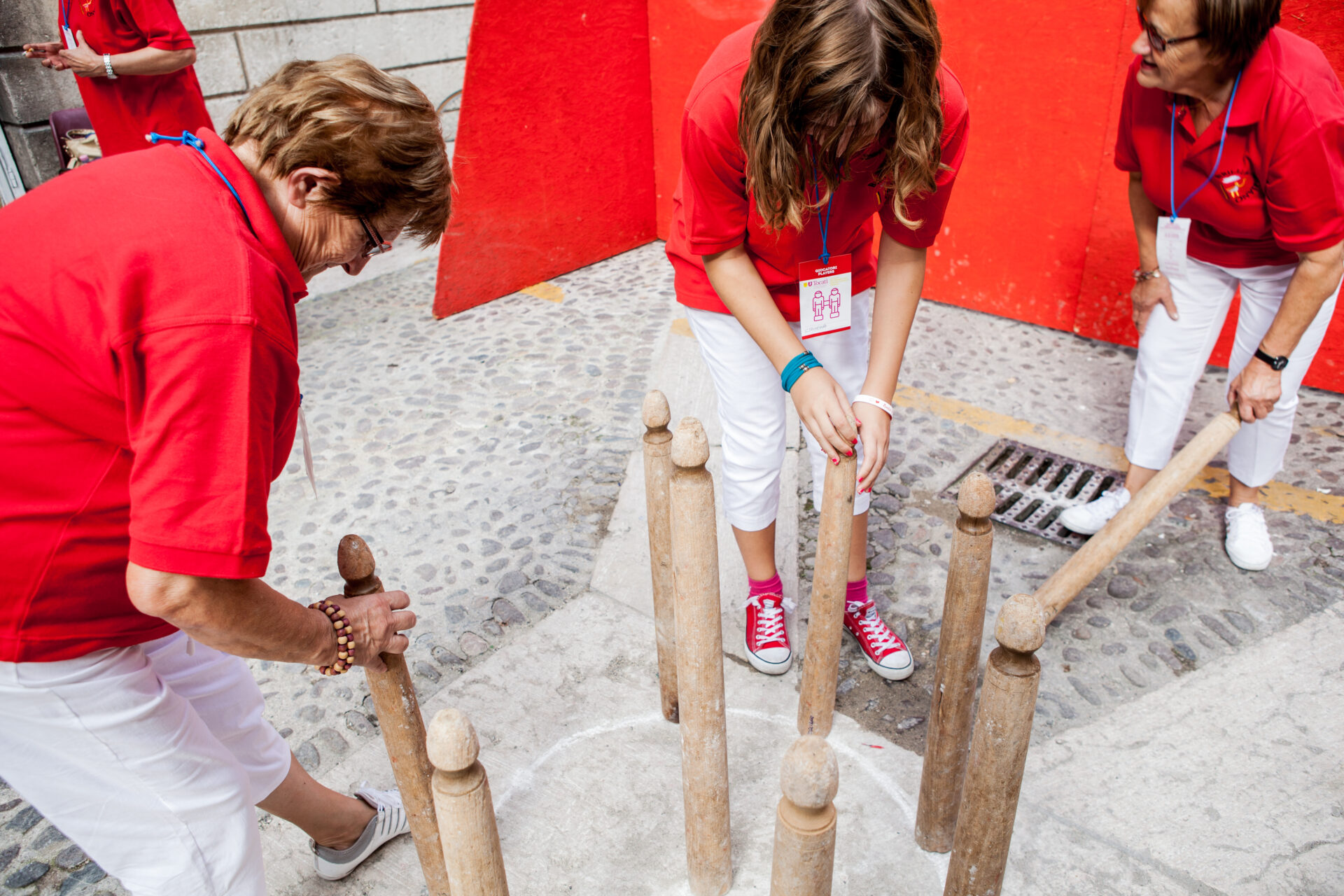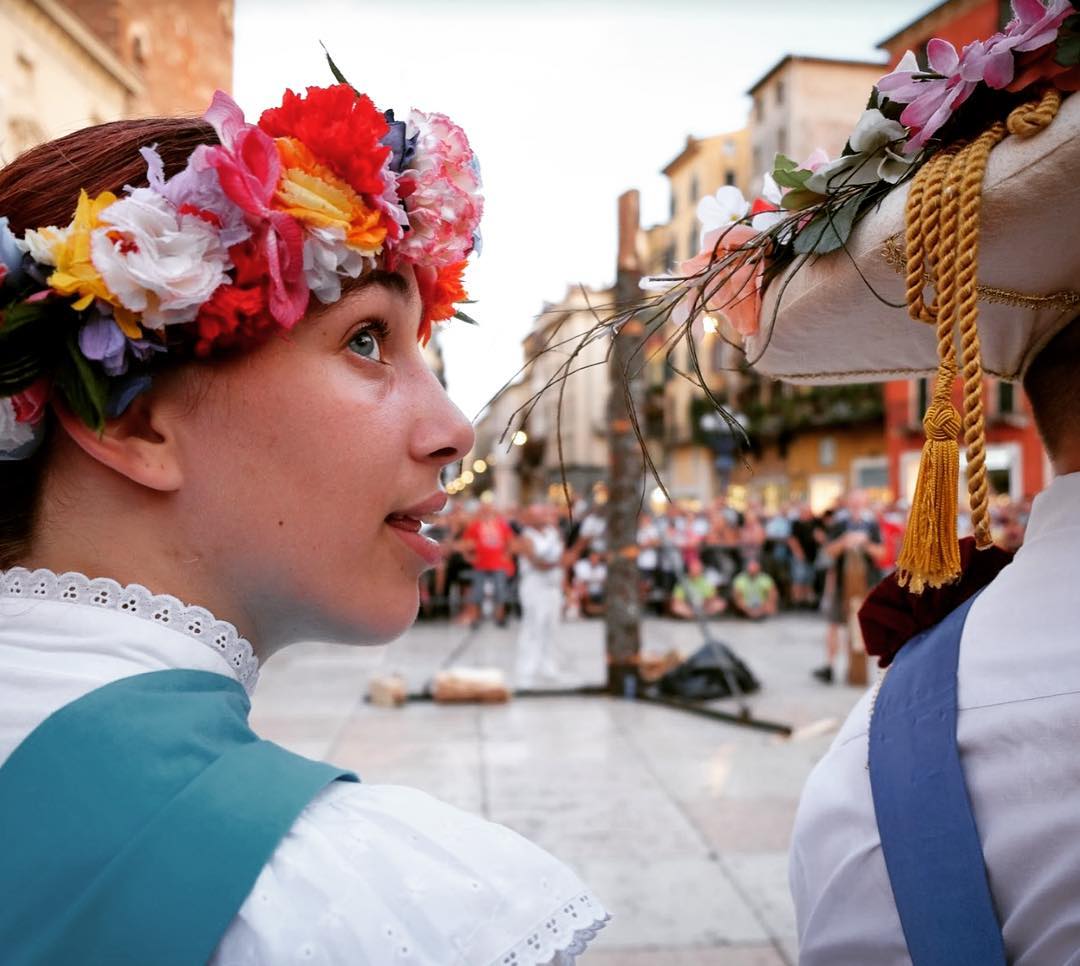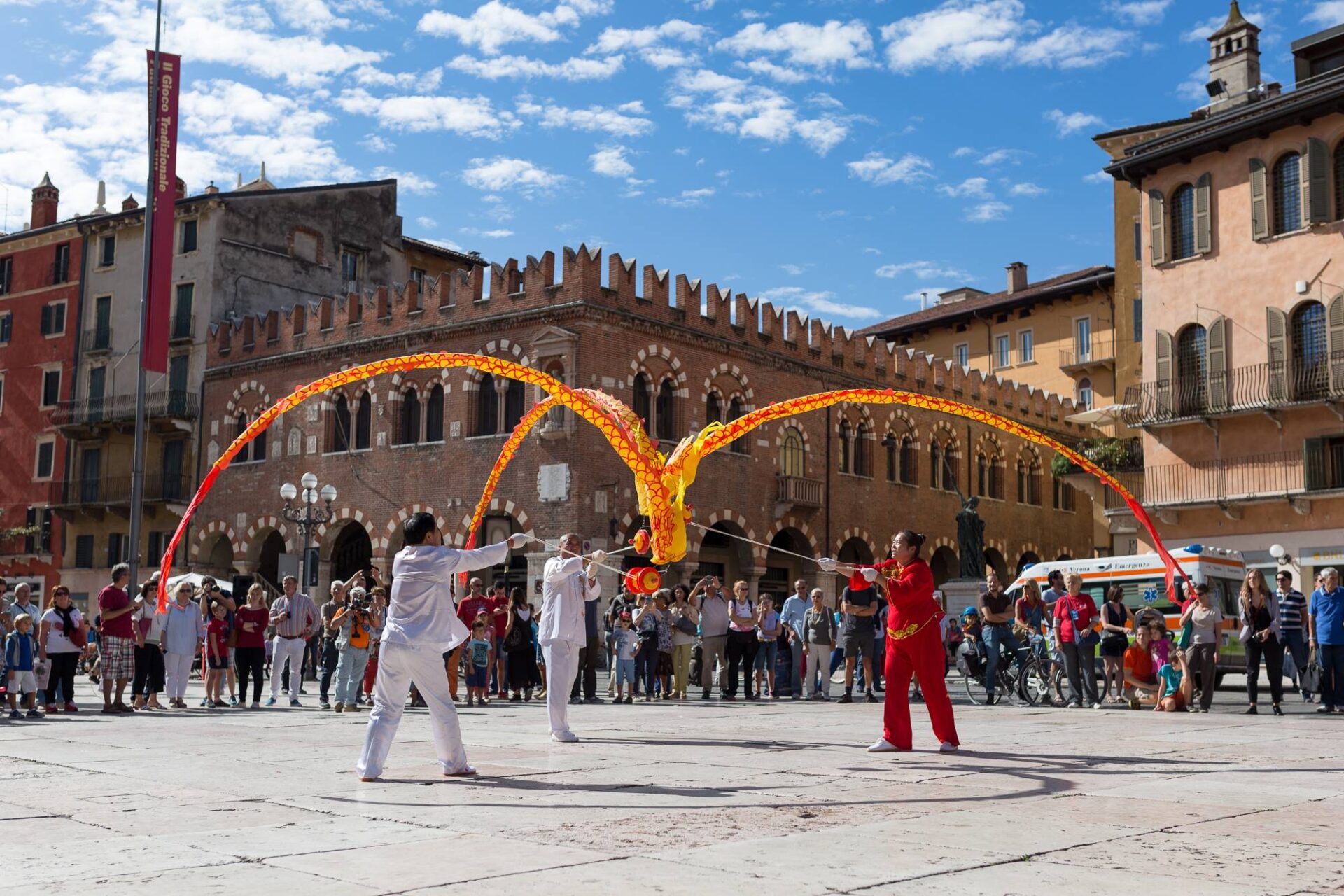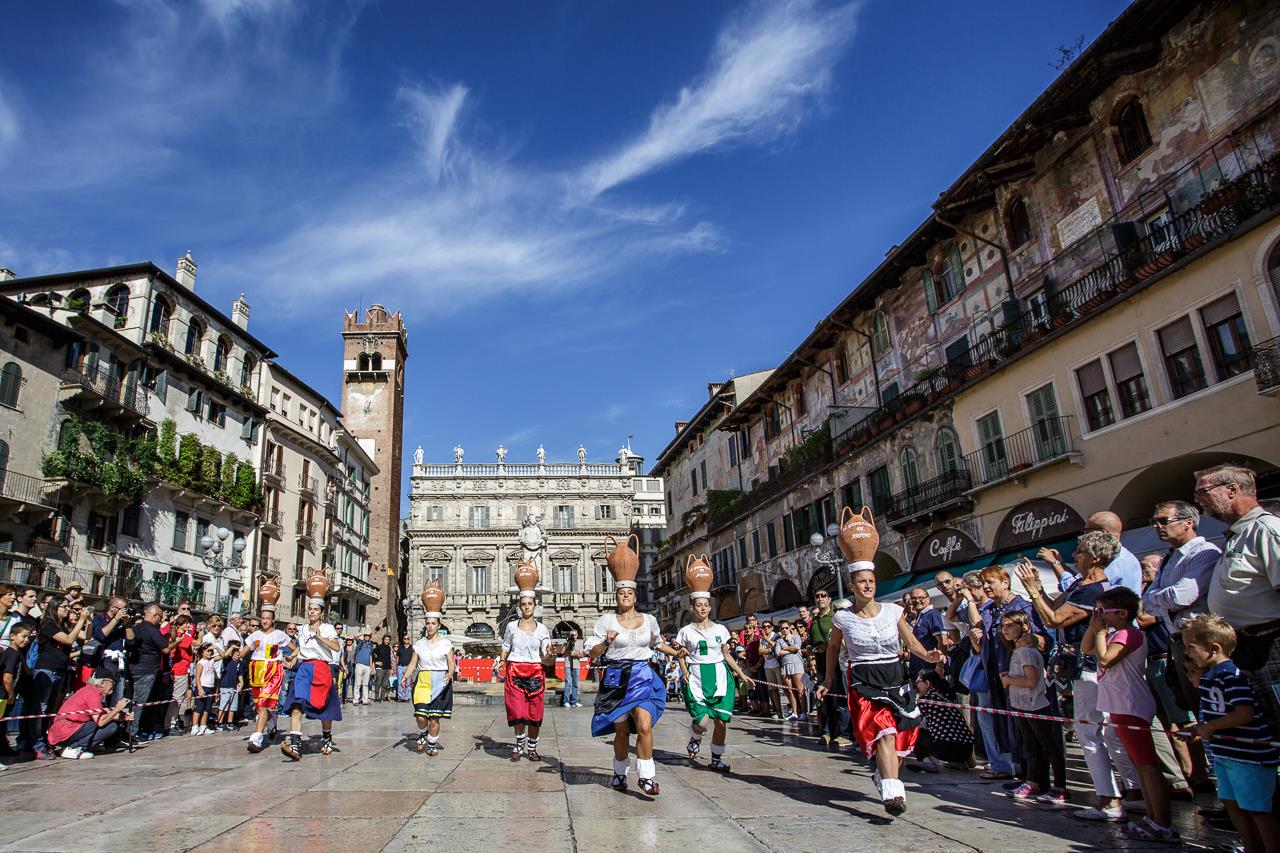Tocatì
The history of the festival
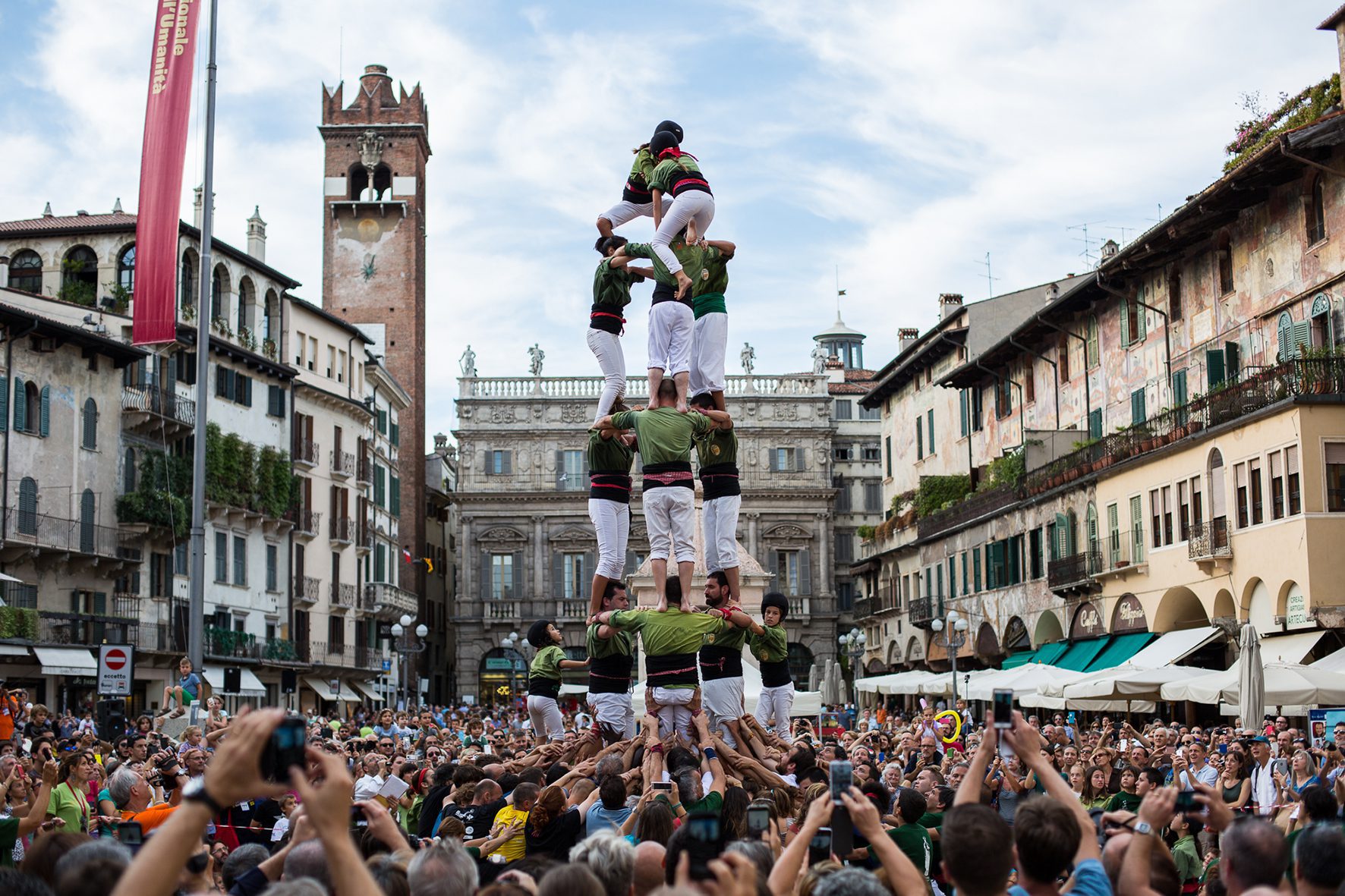
Tocatì, a story that begins with play
It all began in 2003 with a passionate group of S-cianco players, a traditional game from Verona, who decided to bring it back to the squares, among the people, into the vibrant heart of the city. Around them, curiosity grew. Other games joined in, other communities came together, and the streets of Verona were transformed into a vast shared space. From that experience, the Associazione Giochi Antichi (AGA) was born, which over time would give shape and vision to a cultural project capable of engaging the world.
The name of the festival is inspired by a word in the Veronese dialect: Tòca-a-tì, which means “your turn”, a simple yet powerful invitation that captures the essence of play as an act of connection, anticipation, and participation.
From this spontaneous and collective act, a festival was born that today speaks to the world, celebrating each year the beauty of traditional games as a living cultural heritage.
For 23 years, Tocatì has brought Verona’s streets to life with voices, gestures, and laughter intertwining among historic walls and timeless games.
It is a free-entry festival, created to preserve and pass on traditional games and sports, reviving the memory of the communities that keep them alive. Here, play is culture in motion, a universal language, a source of well-being, creativity, and encounter.
In the Veronetta district, on the left bank of the Adige River, the festival unfolds across five areas: Traditional Games and Sports, Performances, Reflections, Flavors, Exhibitions and Guided Tours. The streets become global squares, and each edition welcomes a Guest Country of Honour, bringing along its language, gestures, and unique ways of playing and being together.
During the festival, Verona is transformed: urban spaces open up, become welcoming, filled with moving bodies and new connections. It is a time when citizens reclaim the streets, squares, and courtyards, which once again become places of life, play, and community.
In this same spirit, the Forum of Ludic Culture was created, an open space for thought, dialogue, and research, where during the festival, scholars, players, and institutions exchange ideas on the social and cultural value of play.
In 2025, it will be New Zealand, with Māori culture, that meets Italian play communities, in a dialogue woven through rhythm, body, and memory.
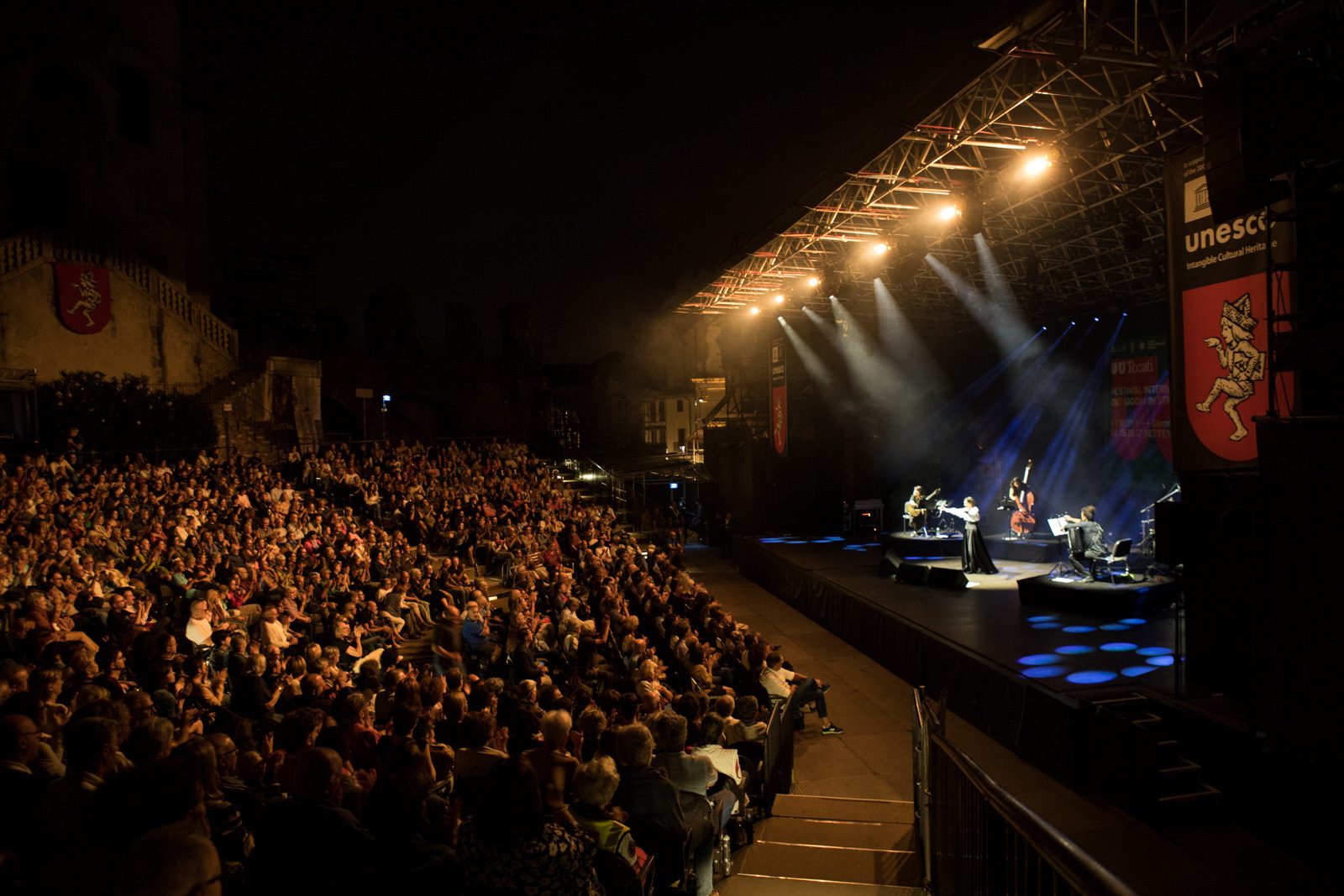
A bridge between cultures
Tocatì is a bridge between cultures, ideas, and traditions. The Guests of Honour of past editions have included Spain, Croatia, Scotland, Greece, Switzerland, Sweden, Mexico, Congo, Iran, Taiwan, Brazil, and Portugal, as well as Croatia, Greece, Scotland, Spain, and Switzerland, Hungary, Mexico, Catalonia, China (Beijing and Guizhou), European Regions, Southern France, Brittany, Le Italie dei Borghi, France, Belgium, Croatia and Cyprus, Portugal, and L’Italia che gioca (“Italy at play”).
Among its guests, there have also been extraordinary voices of contemporary culture such as Salvatore Settis, Marc Augé, Bianca Pitzorno, Marco Paolini, and Joseph Joffo. Unforgettable moments of art, like Michelangelo Pistoletto’s installation The Third Paradise or Teresa Salgueiro’s concert at the Roman Theatre, have turned the festival into a time of deep participation and emotion.
An acknowledgment that speaks to the world
In December 2022, the Tocatì program was recognized by UNESCO as a Good Practice for the Safeguarding of Intangible Cultural Heritage. It is the only case of its kind in Italy. This recognition does not celebrate a single event, but the strength of the community, the value of games as shared rituals, and the ability to build networks while preserving what makes us human.
Tocatì is an invitation to slow down, to look each other in the eye, and to discover that play can be a free and profound space where people reconnect, generation after generation.
